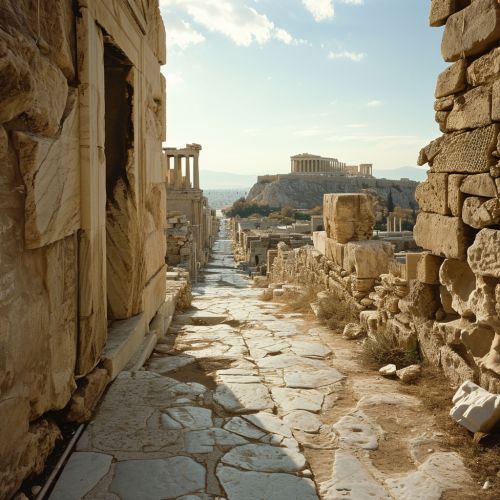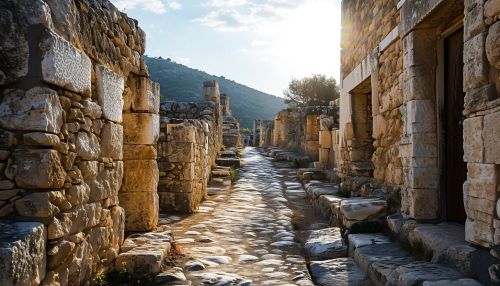Polis
Origins and Development
The term "Polis" originated in ancient Greece and referred to a city-state, which was the primary political unit of the classical Hellenic world. The concept of the Polis evolved over time, reflecting the complex social, political, and economic changes that occurred in ancient Greece.


The Polis was more than just a city in the modern sense; it was a community of citizens with shared laws, customs, and values. The Polis was a self-governing entity, with its own system of government, military, and economy. The citizens of a Polis, known as "politai", had rights and responsibilities within the community, including participation in political decision-making.
Structure and Organization
The structure and organization of a Polis varied greatly, reflecting the diversity of ancient Greek society. However, all Poleis had certain common elements. At the heart of every Polis was the "asty", or urban center, which housed public buildings, temples, and markets. Surrounding the asty was the "chora", or rural territory, which included farmland, pastures, and villages.
Each Polis had its own unique system of government, which could range from a democracy to an oligarchy or a tyranny. The government was responsible for making and enforcing laws, maintaining public order, and defending the Polis from external threats.
Economy
The economy of a Polis was based on agriculture, trade, and craftsmanship. The chora provided the necessary resources for the sustenance of the Polis, including grain, olive oil, and wine. Trade with other Poleis and foreign lands brought in additional goods and wealth. Craftsmen produced a variety of goods, from pottery and textiles to weapons and jewelry.
Culture
The Polis was not only a political and economic entity, but also a cultural one. It was the center of intellectual and artistic activity in ancient Greece. The Polis was home to philosophers, poets, and artists, who contributed to the development of Greek culture and thought.
Decline and Legacy
The Polis began to decline in the Hellenistic period, as larger kingdoms and empires emerged. However, the legacy of the Polis lived on in the Roman and Byzantine periods, and continues to influence modern concepts of citizenship and political community.
